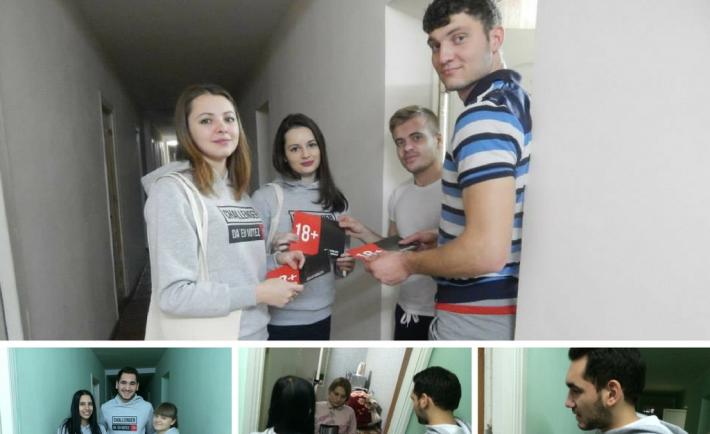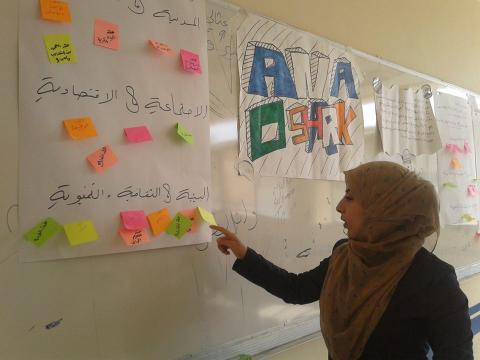
Participants in Moldova’s Challenger program canvass and get out the vote for parliamentary elections.
What helps citizens succeed as political leaders and activists? Beyond providing technical skills and tools, NDI has noted that developing certain attitudes and behaviors can help citizens participate more meaningfully in public life. Young political activists have consistently mentioned the need for improved “soft skills” to work effectively and succeed as leaders. USAID and other donor agencies are also recognizing the importance of putting these skills at the center of human development.
“Soft skills” are more akin to personal habits and perspectives, in contrast with “hard skills”, which are related to specific activities and can be more concretely taught, observed and measured. Although these types of skills are different, they often reinforce each other. For example, the “soft” interpersonal skills required to understand how to best communicate your campaign’s vision to others inform the “hard skills” of writing and implementing a communications plan. Discussions with young women activists suggest that building “soft skills” is particularly important for them, as they experience unique barriers to skills development. Taking into account the different needs, perspectives, and impacts on women and men in program design and implementation is key due to the gendered nature of the distinction between “hard” and “soft” skills.
Soft skills + Hard skills = Political Success
How do “soft skills” relate to NDI’s work to strengthen democratic practice around the world? These skills underlie most activities that leaders, activists, and informed citizens need to fully participate in civic life. Building a coalition to advocate for a change, coming up with innovate solutions to local issues, and running a campaign require a number of “soft skills.” Participants in many NDI programs practice “soft skills” in the course of trainings and activities, from developing intergroup empathy in conflict resolution, to building critical thinking skills for policy development, to developing interpersonal skills through collective participation in advocacy campaigns and policy debates. In these contexts, research shows that skills develop best through longer-term training and experiential learning.
Through NDI’s Ana Usharek (I Participate) and Usharek+ programs in Jordan, youth build a variety of “soft skills” including social and interpersonal skills, higher-order thinking, and goal orientation by openly discussing opposing views with one another, taking part in debate competitions, analyzing public policies and planning and implementing advocacy campaigns.
“Students who complete the [Ana Usharek] program demonstrate a completely different way of thinking about society, with a more disciplined desire to play a publicly active role. They also demonstrate improved abilities to engage constructively with others.” - A Dean of Student Affairs
NDI’s “Challenger” program in Moldova, which prepares young professionals for careers in political parties and government, explicitly aims to develop “soft skills” through its “School of Critical Thinking.” In this part of the program, participants develop a policy proposal based on their own ideological positions and present it to parliamentarians, government officials and members of the press.
For more information regarding “soft skills” program approaches and detailed case studies, see the Citizen Participation team’s May 2017 Civic Update: A New Side of Skills Development.

